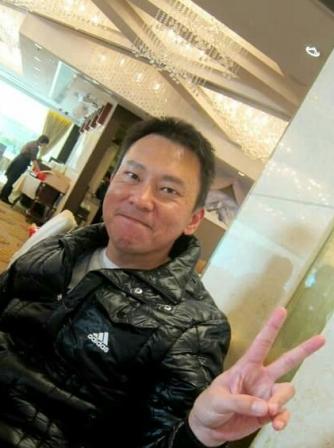Finally, we have a semblance of an economic war. For one whole year, we have waited for a new trade agreement, after one that was reneged by the US President Donald Trump that included China buying more US products, including soy, oil and natural gas, to balance the trade deficits. During this long year, the stock markets went into a roller coaster ride that depended on Trump’s tweets. Even with the initial tariffs hike of US$200b Chinese goods, doesn’t matter that most of the goods were manufactured by China-based US companies, and the corresponding retaliation by China, the Chinese had refused to call it the “Trade War”. After the arrest of Meng Wanzhou, CFO of Huawei, China’s leading smartphone manufacturer and worldwide leader of 5G technology, China would only use the term “Trade Disputes”.
On the 5th May 2019, Trump tweeted that he would raise the tariffs on the existing US$200b goods from 10% to 25%, complaining that China has been trying to delay the deal. It was later revealed that there were several terms that China deemed as absurd. This time, the Chinese didn’t hesitate to call it a “Trade War”. Xi Jinping, the Chairman of the Chinese Communist Party, and the President of China who, on hindsight, was brilliant to have canceled the term limits of his presidency, said he was ready to take responsibility for any consequences of this escalation. Sure enough, the US raised the tariffs, and China retaliated by raising tariffs on US$60b worth of US goods from 10% to 25% as well. Then, as if to coerce China into signing the unfair treaty, Trump signed an executive order declaring a national emergency, barring the use of telecommunications equipment made by companies that are deemed a threat to national security, effectively blacklisting Huawei from buying US components and technology. This was reminiscent of the sanctions on ZTE last year.
Very quickly, Google announced it would abide by the new executive order to halt future Android services for Huawei, including services like Google Play, YouTube and Google maps. Major US Chipmakers including Intel, Qualcomm and Broadcom have also stopped offering supplies to Huawei. Then, two tech standard organizations, the WI-FI Alliance and the SD Association, reportedly cut ties with Huawei. Both organizations claimed that they were complying with the executive order. With all these US-based companies dealing out devastating “blows” to Huawei, it looks like Huawei will easily collapse under the tremendous forces. But is it?
The company founder and CEO, and father of Meng is as defiant as ever, and carries with him an amicable smile while he gives interviews after interviews to domestic as well as foreign media. Ren Zhengfei confidently announces that Huawei is ready to fight this war with the US government. As early as 2012, Ren had the vision that Huawei would have to prepare for the days that they would be cut off from the US suppliers. He candidly said that he got the idea from the movie “2012” about the end of the world. Since then, Huawei has been busy planning for the day to come. The end of the world did not come, but the attack on ZTE certainly called for Plan B to be activated.
Not only is Huawei almost independent of the US market, it has its own chips built into its high-end smartphones, the Mate20 and P30. Huawei also developed its own Huawei Nano Memory (NM) card in 2018. This is the standard card offered to the high-end handsets. Losing Android and built-in Google apps do not hurt Huawei’s domestic market since most of Google apps are not available for the Chinese market but it would affect Huawei’s overseas markets. Huawei would have to race against time to introduce its Android compatible Hong Meng OS before there’s a run on Huawei products.
It definitely seems like Huawei is at least one step ahead of Trump’s Huawei Ban. This is before Xi makes his moves against the US. Rumors are rampant that Xi would either weaponize China’s rare earth productions, or China would unload the more than 1 trillion worth of US debts, or to restrict Wechat downloads on Apple iPhones, which would certainly kill iPhone sales in China, calling it a tit for tat retaliation.
Ren calls for calm, saying that Apple is the teacher of Huawei, having learned much from Steve Jobs and the Apple products. Whatever that doesn’t kill you makes you stronger. Trump’s bullying and his willingness to sacrifice American reputation just to kill a Chinese tech company sends non-American companies fleeing. Going forward, new alliances would be forged, and consortia formed with tech companies from Europe and Asia to break the tech monopolies of Google, ARM, WIFI Alliance, etc. And Huawei is still the leader of 5G technology by at least 2 years. Trump probably unwittingly created China’s Sputnik Moment.
Image: Huawei Press Center
The views and opinions expressed in this article are those of the author and do not necessarily reflect the official policy or position of The Geopolitics.

Joseph graduated with a degree in Business Administration from the National University of Singapore and is a CFA and CAIA charterholder. He enjoys geopolitics and study international politics extensively. Joseph currently lives in Hong Kong.

